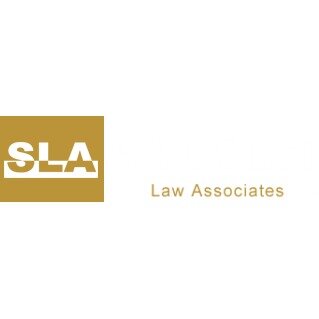Best Trusts Lawyers in Lahore
Share your needs with us, get contacted by law firms.
Free. Takes 2 min.
List of the best lawyers in Lahore, Pakistan
Pakistan Trusts Legal Questions answered by Lawyers
Browse our 1 legal question about Trusts in Pakistan and read the lawyer answers, or ask your own questions for free.
- proof of legal heir
- I am nominated by my uncle for his property after his death, he does not have any legal heir parents, sister, brothers, children, and wife. i need to get the succession certificate, but how can I prove to the court that there is no legal heir for my uncle now,... Read more →
-
Lawyer answer by SJ Law Experts
Thank you. SJ Law Experts, Islamabad [Advocates, Legal Advisors & Immigration Lawyers].
Read full answer
About Trusts Law in Lahore, Pakistan
Trust law in Lahore, Pakistan, is derived from a combination of English common law principles and specific local statutes. A trust is a legal arrangement where one party, known as the 'trustee', holds and manages property for the benefit of another, called the 'beneficiary'. Trusts can serve a variety of purposes including estate planning, asset protection, and the establishment of charitable foundations. The key legal instruments governing trusts in Lahore are the Trusts Act of 1882 and various rulings made by Pakistani courts that interpret and apply this law.
Why You May Need a Lawyer
There are many situations where individuals may need legal assistance regarding trusts in Lahore, Pakistan. Some of the common scenarios include setting up a trust for asset management, estate planning purposes, or for charitable activities. Additionally, disputes over the interpretation of trust documents, the rights of beneficiaries, or the responsibilities of trustees often necessitate legal expertise. A lawyer specializing in trust law can help you navigate complex legal requirements, ensure compliance with laws and regulations, and safeguard your interests in the administration of a trust.
Local Laws Overview
The main statute governing trusts in Lahore is the Trusts Act of 1882. Key aspects of these local laws include:
- The definition of what constitutes a trust, trustee, and beneficiary.
- The requirements for creating a valid trust.
- The duties and powers of trustees.
- The rights of beneficiaries.
- Provisions for the appointment and removal of trustees.
- Regulations pertaining to the management and disposition of trust property.
Understanding these elements of trust law is crucial for anyone considering setting up a trust or currently involved in trust-related matters.
Frequently Asked Questions
What is the process for setting up a trust in Lahore?
To set up a trust in Lahore, one needs to draft a trust deed outlining the details of the trust arrangement, including the trustee, beneficiary, and terms of the trust. This deed should then be registered, if applicable, as per the requirements of the local law.
Can I appoint myself as a trustee?
Yes, you can appoint yourself as a trustee, but typically a third party is appointed to ensure objectivity and the proper management of the trust property, in accordance with the terms of the trust and the best interests of the beneficiary.
Who can be a beneficiary of a trust?
Any person or entity that is capable of holding property can be a beneficiary of a trust, including individuals, families, or charitable organizations.
Are trusts taxed in Lahore?
The taxation of trusts in Lahore depends on the nature and purpose of the trust. It is advised to consult with a trust lawyer or tax consultant to understand the specific tax obligations that may arise.
How can I change the terms of a trust?
The terms of a trust can be changed through a variation of trust deed; however, this process is often subject to certain restrictions and usually requires the consent of all beneficiaries or an order from the court.
What happens if a trustee does not perform their duties properly?
If a trustee fails to perform their duties, beneficiaries can seek legal recourse which may include the trustee's removal or seeking damages, depending on the breach of trust.
Can a trust be dissolved?
Yes, a trust can be dissolved if the purpose for which it was created has been fulfilled or becomes unlawful or if all beneficiaries agree to its termination, subject to the trust deed's conditions and applicable laws.
Are trust records public in Lahore?
Typically, trust records are not public documents in Lahore. However, a trust deed that is registered becomes a public document and can be accessed by the public.
What is a testamentary trust?
A testamentary trust is created through a will and comes into effect upon the death of the testator-the person who creates the will.
Can a minor be a beneficiary in a trust?
Yes, minors can be beneficiaries in a trust; however, the trust must make provisions for their guardianship and management of their interest until they reach adulthood.
Additional Resources
For those seeking legal advice in the field of trusts, additional resources include the Lahore High Court's library for case law, the Bar Council, and the Society for Trust and Estate Practitioners (STEP) which may provide further information and support for trust-related matters. It is also beneficial to review literature on the Trusts Act of 1882 to gain a comprehensive understanding of trust law in Lahore.
Next Steps
If you require legal assistance with trusts in Lahore, Pakistan, your next steps should include:
- Finding a reputable lawyer who specializes in trust law.
- Gathering all necessary personal documents and information relevant to the trust.
- Scheduling a consultation with your lawyer to discuss your specific needs and circumstances.
- Discussing fees and obtaining a clear understanding of the legal process ahead.
With professional legal help, you can ensure that your trust-related matters are managed effectively and in compliance with local laws.
Lawzana helps you find the best lawyers and law firms in Lahore through a curated and pre-screened list of qualified legal professionals. Our platform offers rankings and detailed profiles of attorneys and law firms, allowing you to compare based on practice areas, including Trusts, experience, and client feedback.
Each profile includes a description of the firm's areas of practice, client reviews, team members and partners, year of establishment, spoken languages, office locations, contact information, social media presence, and any published articles or resources. Most firms on our platform speak English and are experienced in both local and international legal matters.
Get a quote from top-rated law firms in Lahore, Pakistan — quickly, securely, and without unnecessary hassle.
Disclaimer:
The information provided on this page is for general informational purposes only and does not constitute legal advice. While we strive to ensure the accuracy and relevance of the content, legal information may change over time, and interpretations of the law can vary. You should always consult with a qualified legal professional for advice specific to your situation.
We disclaim all liability for actions taken or not taken based on the content of this page. If you believe any information is incorrect or outdated, please contact us, and we will review and update it where appropriate.












